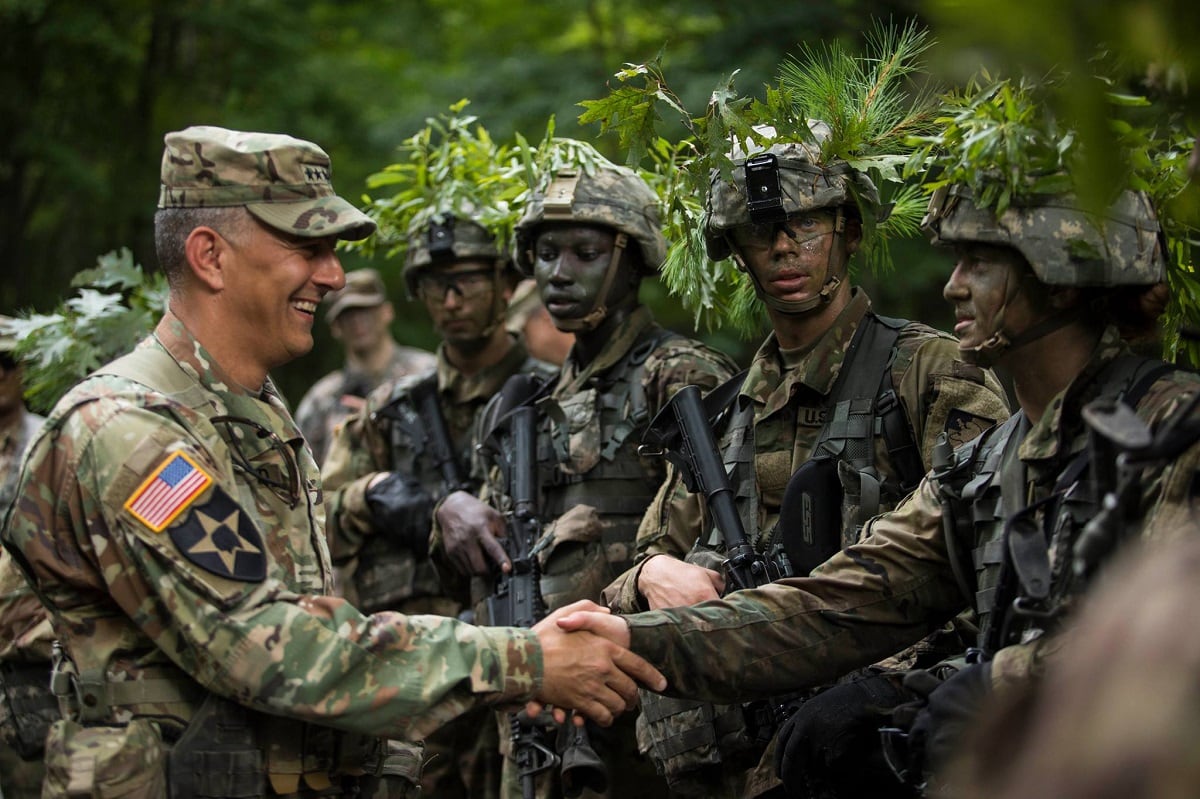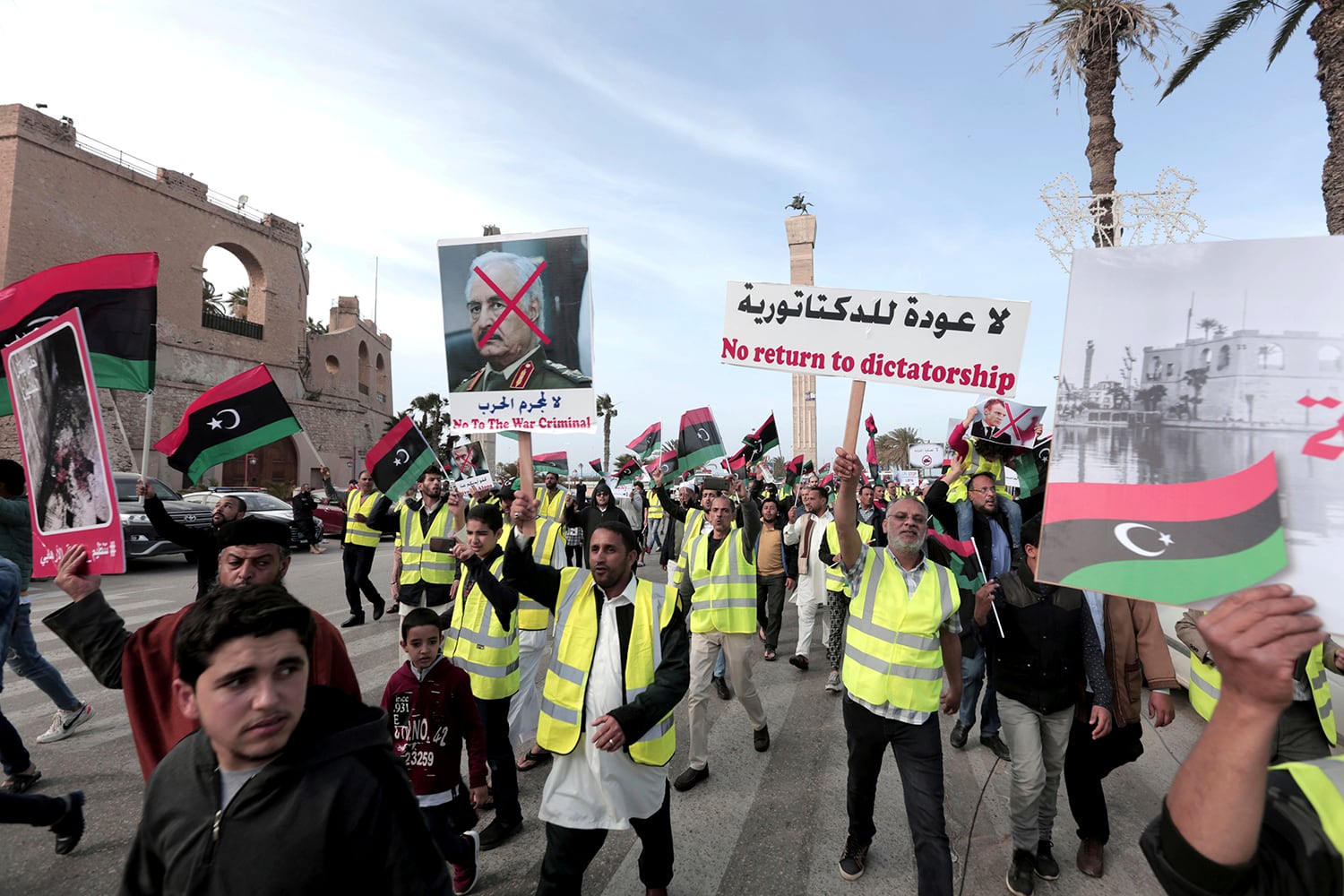Russia has deployed military fighter jets to Al Jufra Airfield in Libya where they are expected to back Russian state-sponsored private military contractors, according to U.S. Africa Command.
Specifically, the command predicts the aircraft will provide close-air support and offensive fires for the Wagner Group — a private military company that U.S. officials have warned has close ties to the Kremlin and is headed by a former Russian intelligence officer. Additionally, the Wagner Group backs the Libyan National Army that has launched an offensive against the U.S. and United Nations-backed Government of National Accord.
After departing a Russia airbase, AFRICOM said it believes MiG-29 and Su-24 aircraft stopped over in Syria and were repainted to conceal its Russian origin before heading over to Libya. AFRICOM spokesperson Maj. Karl Wiest confirmed to Military Times at least 14 Russian aircraft were deployed.
"Russia is clearly trying to tip the scales in its favor in Libya. Just like I saw them doing in Syria, they are expanding their military footprint in Africa using government-supported mercenary groups like Wagner," AFRICOM commander Army Gen. Stephen Townsend said in a news release Tuesday.
“For too long, Russia has denied the full extent of its involvement in the ongoing Libyan conflict,” Townsend said. “Well, there is no denying it now. We watched as Russia flew fourth generation jet fighters to Libya — every step of the way. Neither the LNA nor private military companies can arm, operate and sustain these fighters without state support ― support they are getting from Russia.”
RELATED

Following the overthrow of Libyan dictator Moammar Gadhafi, the U.S. maintained a small number of troops in Libya starting in 2011 to support local forces countering Islamic State and al-Qaida-linked militants there. U.S. troops were removed from Libya in April 2019 though due to heightened unrest, after the LNA led by Field Marshal Khalifa Hifter launched an offensive against the GNA in Tripoli.
Hifter, a former CIA asset, was exiled during Gadhafi’s leadership and obtained U.S. citizenship in the 1990s while living in Virginia before returning to Libya in 2011.
Wiest told Military Times AFRICOM troops have not returned to Libya since they were relocated.
RELATED

Meanwhile, Turkish-backed forces in Libya have made inroads in the fight against the LNA in recent days, such as retaking al-Watiya air base less than 100 miles from Tripoli last week. Days later, Hifter’s air force chief Saqr Al-Jaroushi warned the LNA would launch “the largest aerial campaign in Libyan history,” Bloomberg first reported on Friday.
“The world heard Mr. Haftar declare he was about to unleash a new air campaign. That will be Russian mercenary pilots flying Russian-supplied aircraft to bomb Libyans,” Townsend said.
According to Wiest, the Kremlin is eying establishing a platform on Europe’s southern flank, allowing Russia to increase its influence in Africa and the Mediterranean.
"If Russia seizes basing on Libya's coast, the next logical step is they deploy permanent long-range anti-access area denial (A2AD) capabilities," said Air Force Gen. Jeff Harrigian, the commander of U.S. Air Force in Europe-Air Forces Africa. "If that day comes, it will create very real security concerns on Europe's southern flank."
AFRICOM has previously warned that Libya’s civil war could also ignite violent extremist organizations there, including ISIS-Libya, by creating a ripe environment for recruiting and basic training.
“The ongoing fighting and conflict in Libya has the potential to give existing terrorist elements in Libya oxygen," AFRICOM spokesman Air Force Col. Chris Karns told Military Times in August 2019. "This is a situation that is being carefully monitored. Intensified and inclusive dialogue is occurring to work toward a political solution.”
The command last conducted airstrikes in Libya in September 2019 as part of counter-terrorism operations. Altogether, the U.S. has roughly 6,000 DoD personnel on the African continent.




